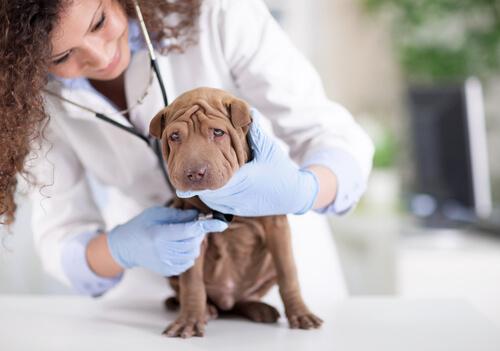Find Out Which Vaccines Are Mandatory for Your Pet!

Beyond just knowing which vaccines are mandatory, the veterinary doctor is the one who will determine the right vaccination schedule for your pet. In addition, the vet will decide this depending on your pet’s age, lifestyle and living area. In this article we’ll be giving you information about the most used vaccines for dogs and cats.
Vaccination schedule for domestic animals
In the case of dogs, the most-used vaccines are the ones used for preventing:

- Distemper
- Parvovirus
- Kennel cough
- Hepatitis
- Leptospirosis
On the other hand, the vaccines that are most used for cats are to protect against:
- Panleukopenia
- Rhinotracheitis
- Calicivirus
- Leukemia
However, both dogs and cats should get the rabies vaccine.
To find out which vaccines are important for your furry friend, consult your vet and stick to the schedule he’ll provide you with.
Ask your vet which vaccines are important for your pet
Please note that although some vaccines are mandatory, they will only be effective if your pet is in good health, has been dewormed, and has a good immune system.
It’s important for you to know that vaccines are not only important to help your pet stay healthy, but also to ensure that certain diseases he or she may get don’t affect you or your family. Because of this, sticking to the given vaccination schedule is also a good investment.
Remember the saying “better safe then sorry”? Well, this is very much the case. Vaccinating your pet, in addition to saving you money, will prevent suffering for you and your pet.
Vaccination schedule for dogs
If you’ve had your dog since he was a small puppy, go to the vet for advice on the best vaccination schedule.
In general, this is a recommended schedule:
- 6 weeks of age: A first dose against parvovirus and distemper
- 2 months: Polyvalent vaccine (parvo, distemper, hepatitis, parainfluenza, leptospirosis)
- 3 months: A second polyvalent dose
- 4 months: Rabies
- Annually: Polyvalent vaccine and rabies
Some details about dogs and vaccines
The decision on which vaccinations to give your dog will depend on different factors to be evaluated by a professional. For example:
- The most dangerous diseases for puppies are parvovirus and distemper
- The age at which the puppy stopped nursing
- The puppy’s mother has been dewormed and vaccinated by a vet
- Breeds such as the Rottweiler, Boxer and Pitbull are more likely to contract Coronavirus disease
- The geographical area the animal lives in. In rural areas, or in those where feral dogs are abundant, there’s a greater risk of getting different diseases. Especially distemper and parvorvirus, for instance.
- If there’s a high risk that your dog will get ticks, your vet will probably also vaccinate him against Lyme disease.
Vaccines for cats

Most importantly, kittens should receive their vaccinations after weaning. This usually happens between 8 and 10 weeks of age.
To protect your cat from the most common diseases – panleukopenia, calicivirosis and rhinotracheitis – the Trivalent vaccine should be applied. You’ll need a second dose after 3 weeks.
After that, kittens should receive a vaccine that protects them from leukemia, a fairly common disease with a high death rate. Nevertheless, you can also apply an anti-rabies vaccine, although it’s not required in all areas. However, always consult your vet.
Are there required vaccinations to travel abroad with my pet?
Beyond meeting the vaccination schedule and keeping your pet healthy and happy, remember that to travel abroad you’ll need to have your pet’s medical records up to date, for instance.
In these cases, find out about the requirements needed to enter each country. In addition, your vet will also be able to advise you on vaccinations and other health requirements depending on where you’re going.